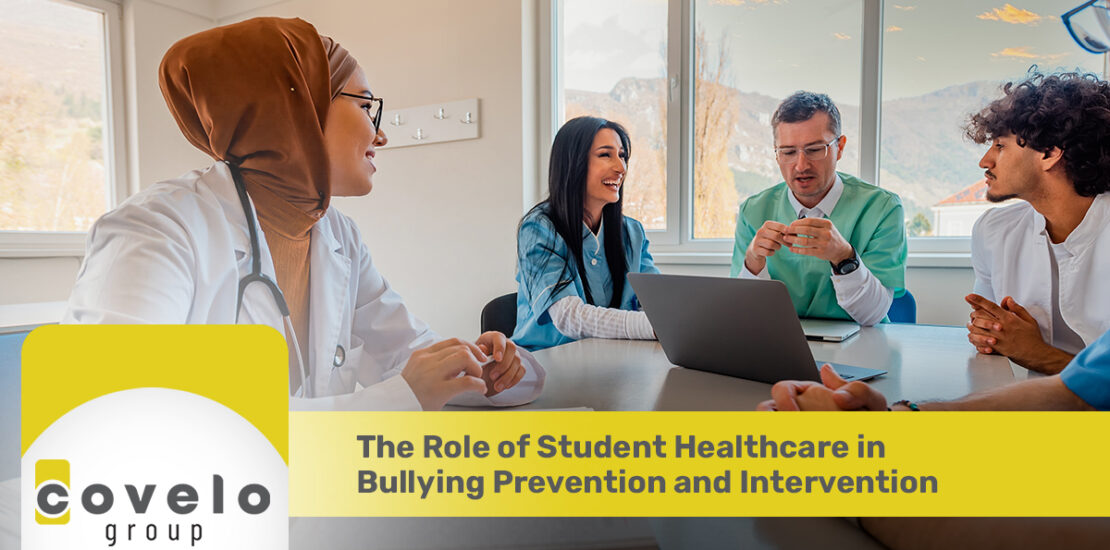- November 8, 2023
- Posted by: Covelo Group
- Category: Educational Services

The presence of a student healthcare professional, every day during school hours, gives students access to a trusted individual with whom they can confide. These workers can use assessment, screening, surveillance, and monitoring to identify students showing signs of bullying. A recent study demonstrates that school-based healthcare interventions can prevent and reduce the prevalence of bullying in schools. School healthcare workers are essential members of the school community who make crucial contributions to help protect students from bullying. They help make it possible for all students to learn in a safe and reassuring environment.
How Student Healthcare Workers Help in Unique Ways
Prevention of Bullying
Healthcare workers working with students are in a position to prevent bullying. Their role is to identify the bully, those they bully, or both. The healthcare professional is a non-disciplinary, non-academic staff member who can build a unique rapport with students. Students can confide in and trust a healthcare professional.
School-based healthcare professionals can assist in multiple ways. They can be aware of bullying, aggressive behavior, victimization, and long-term consequences of bullying. These professionals can share information and observations on identifying students at risk. Healthcare workers can screen students for bullying and stress and create a safe environment in the school where students can discuss bullying.
Identification and Intervention
Bullying can affect any student at school and beyond. Those students with disabilities, academic difficulties, and speech impairments are particularly at risk. Physical appearance, such as glasses, hair color, and weight, can also attract bullies. There are long-term consequences. A healthcare worker can take note of signs associated with bullying:
- Increase in absenteeism
- Diminished educational achievement
- Behavior issues
- Low self-esteem
- Sleep deprivation
- Depression and anxiety
- Self-harm
- Dropping out of school
A professional can identify cases of bullying based on the symptoms and intervene with bullying prevention, crisis management, and school violence prevention.
Healthcare providers can address and prevent bullying by collaborating with teachers and other education professionals. Building trusting relationships is critical, as is keeping lines of communication with students, school staff, volunteers, families, and community members. Bullying is a health concern with a significant impact on schools and communities. School-based healthcare professionals are frequently the first line of defense for students feeling unsafe or uncomfortable.
Make a Real Difference for Students
Are you looking for a healthcare job where you can make a difference? Covelo Group is a direct line to clinical and non-clinical healthcare jobs. Whether you are in a nursing, allied health, educational services, or non-clinical role, the team at Covelo Group has a job for you.

